Discover El Castell de Guadalest, the mountain villages and the Reservoir Walk in Guadalest Valley, Costa Blanca (Spain).
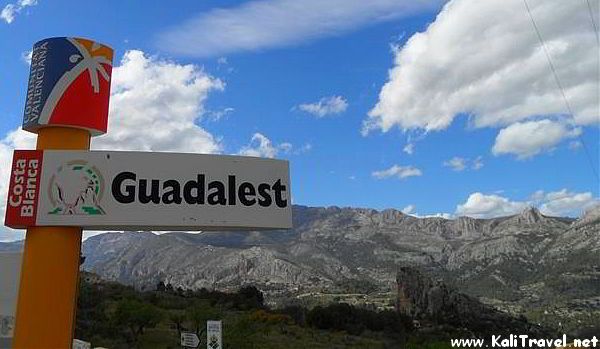
The Guadalest Valley is probably one of the most popular places for a day out in Spain, to see the quaint villages or enjoy the scenic mountain walks.
Everyone who has ever holidayed in Benidorm has been on a coach trip to ‘Guadalest’, locals have no doubt eaten at one of the traditional mountain restaurants and many of us have driven up to this picturesque part of the Costa Blanca for the afternoon with family and friends. But have we really seen more than the touristy veneer?
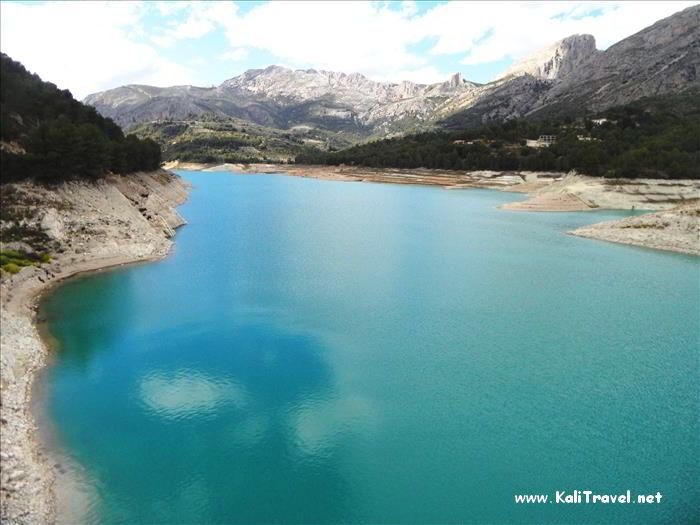
The Guadalest Valley
There are six villages encompassed in the Guadalest valley which is confined by the Confrides mountain pass at the top, Sierra Aitana (the highest mountain in Alicante province at 1,558mt) to the south, with Sierra de Xortá and Sierra Serella on the northern side.
The Guadalest River flows through the valley from the source at Confrides until it is retained in the Guadalest reservoir, and finally joins the Rio Algar in Altea before running into the Mediterranean Sea.
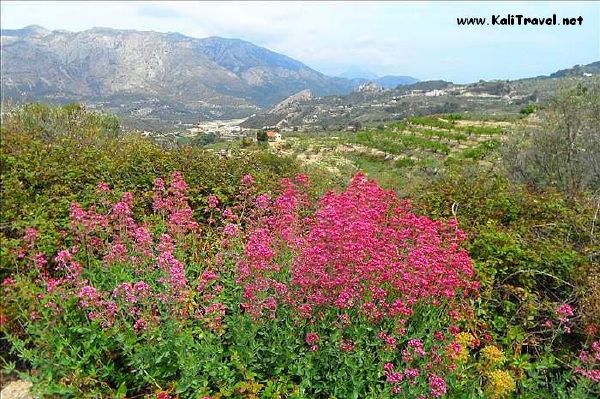
The rural villages that lie in the valley date back to Moorish times and local families still carry on the agricultural tradition handed down through the centuries, cultivating almonds, olives, medlars, oranges and vines – some continue to elaborate wine in the natural ecological way, treading the grapes and with no additives.
It’s a beautiful area to explore, especially in springtime when the fruit trees are in blossom and the fields are filled with colourful wild flowers.
El Castell de Guadalest Village
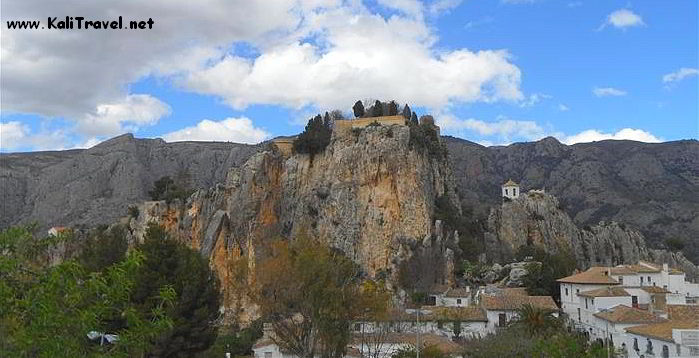
El Castell de Guadalest is unique in the world and a recognised as a place of ‘Historical Cultural Interest’ since 1974. Built on a crag, the only entrance to the village is tunnelled through the rock. San José Castle was built as a defensive fortress in the XI century by the Moors and the remains are located on the highest part of Guadalest.
This strategic position played an important part of history during the Middle Ages but the castle was severely damaged by an earthquake in 1644 and later destroyed during the Spanish Succession war in 1708.
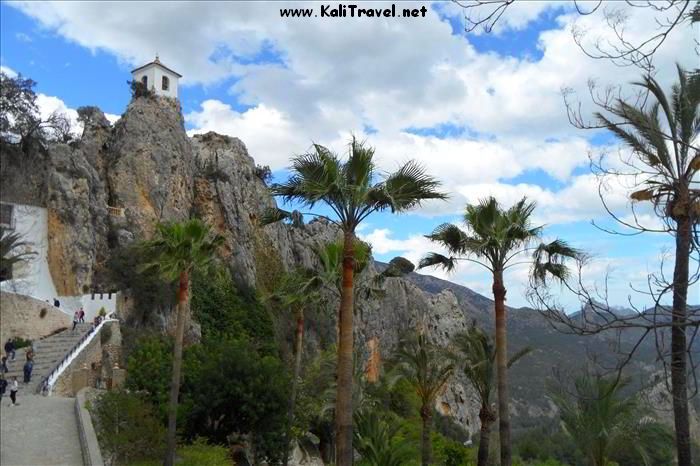
Other interesting sites include the Alcozaiba castle, also built in the same era – only the iconic tower remains at the entrance to Guadalest. Casa Orduña is a nobleman’s house built in the XVIII century, now a museum decorated with typical XIX furniture, and a collection of paintings and pottery.
The XVIII century parish church, Nuestra Señora de la Asunción is in baroque style. Guadalest prison goes back to the XII century- you can go down to the dungeons beneath the Town Hall.
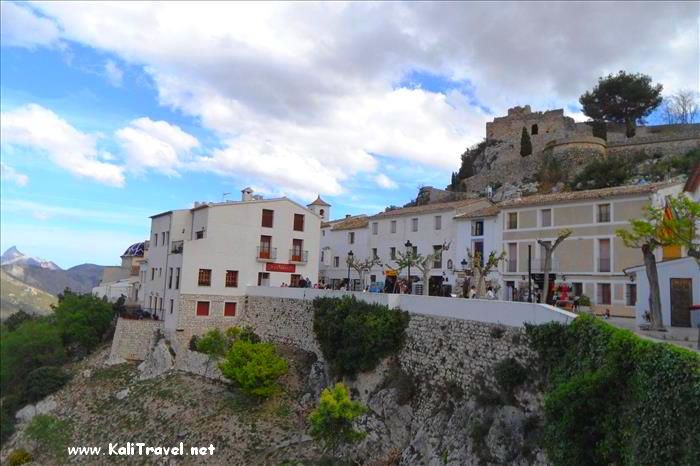

Over the years, Guadalest has become famous for its unusual museums which include Guadalest Ethnologic Museum, Casa Orduña, Nativity Scenes and Dolls Houses, Instruments of Torture, Micro-Miniatures, Salt and Pepper Sets (20,000), Micro-Giant (miniature and giant sculptures) and a museum of Historic Vehicles.
Gift shops offer a fascinating selection of arts, crafts and souvenirs, while delicatessens sell local produce such as sausages, cheese, honey, vinegars and olive oil.
There are numerous restaurants in and around Guadalest, many serving typical local Mediterranean cuisine.
Guadalest Reservoir Walk
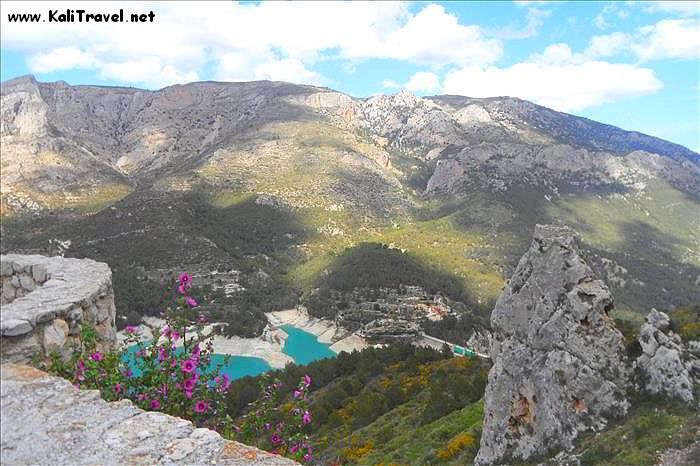
As you can see, Guadalest packs a lot into such a small place! The village square overlooks the valley and the clear turquoise waters of the reservoir below, reflecting the blue sky and green pine trees on the slopes of the surrounding mountains.
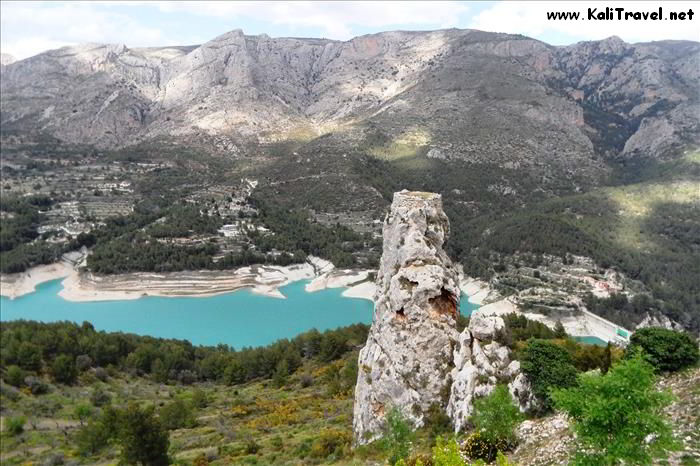
If you want to escape the day trippers, take a quiet walk or enjoy a picnic, go down to the reservoir. Follow the CV-70 road from Callosa de Ensarriá and, just before you reach Guadalest, take the turning down to the dam. This is one of the best trails on Costa Blanca.
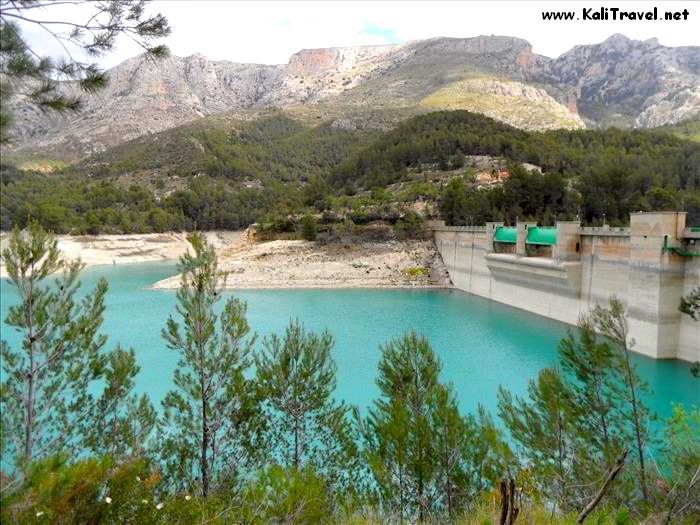
A circular walks starts on a footpath under the Guadalest fortress, leading through pine woods following the reservoir to Beniardá – alternatively continue driving or cycling along the lane on the opposite bank.
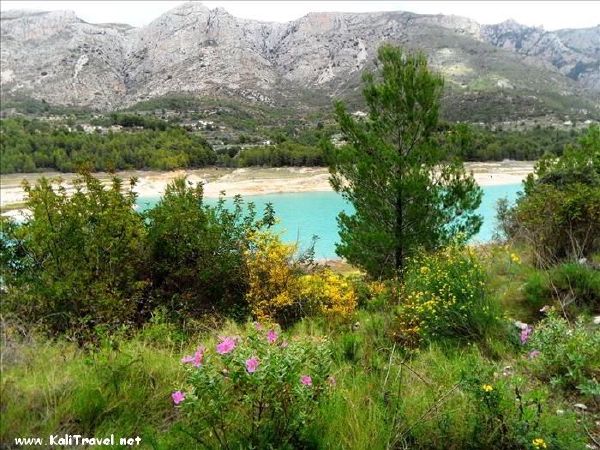
Other Villages in Guadalest Valley
Related Post:
Continue reading about the other villages in the Guadalest Valley: Benimantell, Beniardá, Benifato, Abdet and Confrides.
How to Get to Guadalest
Nearest airport: Alicante (74km).
By road from the coast: AP-7 or N-332, exit at Benidorm. Take the CV-70 towards La Nucia, from here either take the new variant via Polop de la Marina or carry on the original CV-70 through Callosa de Ensarriá.
Related posts about the Costa Blanca
(Alicante Province north to south)
- Costa Blanca Beaches and Coastal Resorts with info on outdoor activities, watersports, local history, cuisine, fiestas, getting here…
- Dénia
- Ondara
- Moraira
- Benissa
- Calpe
- Jalón Valley
- Altea
- Alfaz de Pi & El Albir
- La Nucía
- Polop de la Marina
- Guadalest Valley – Guadalest village and reservoir walk
- Guadalest Valley – Benimantell, Beniarda, Benifato, Abdet, Confrides
- Benidorm
- Finestrat
- Finestrat – Mountains Walks – Puig Campana
- Villajoyosa
- El Campello
- San Juan beach
- Alicante
- Tabarca Island
- Torrevieja
- Rojales
- Pilar de La Horadada
Discover the World with![]() the blog with a focus on independent travel
the blog with a focus on independent travel




Appreciating the dedication you put into your site and in depth information you offer. It’s good to come across a blog every once in a while that isn’t the same out of date rehashed material. Excellent read! I’ve bookmarked your site and I’m adding your RSS feeds to my Google account.
recommended financial advisors http://financetip.eu/
thankyou
I wanted to thank you for this very good read!! I certainly loved every little bit of it. I have got you saved as a favorite to look at new things you post.
thankyou